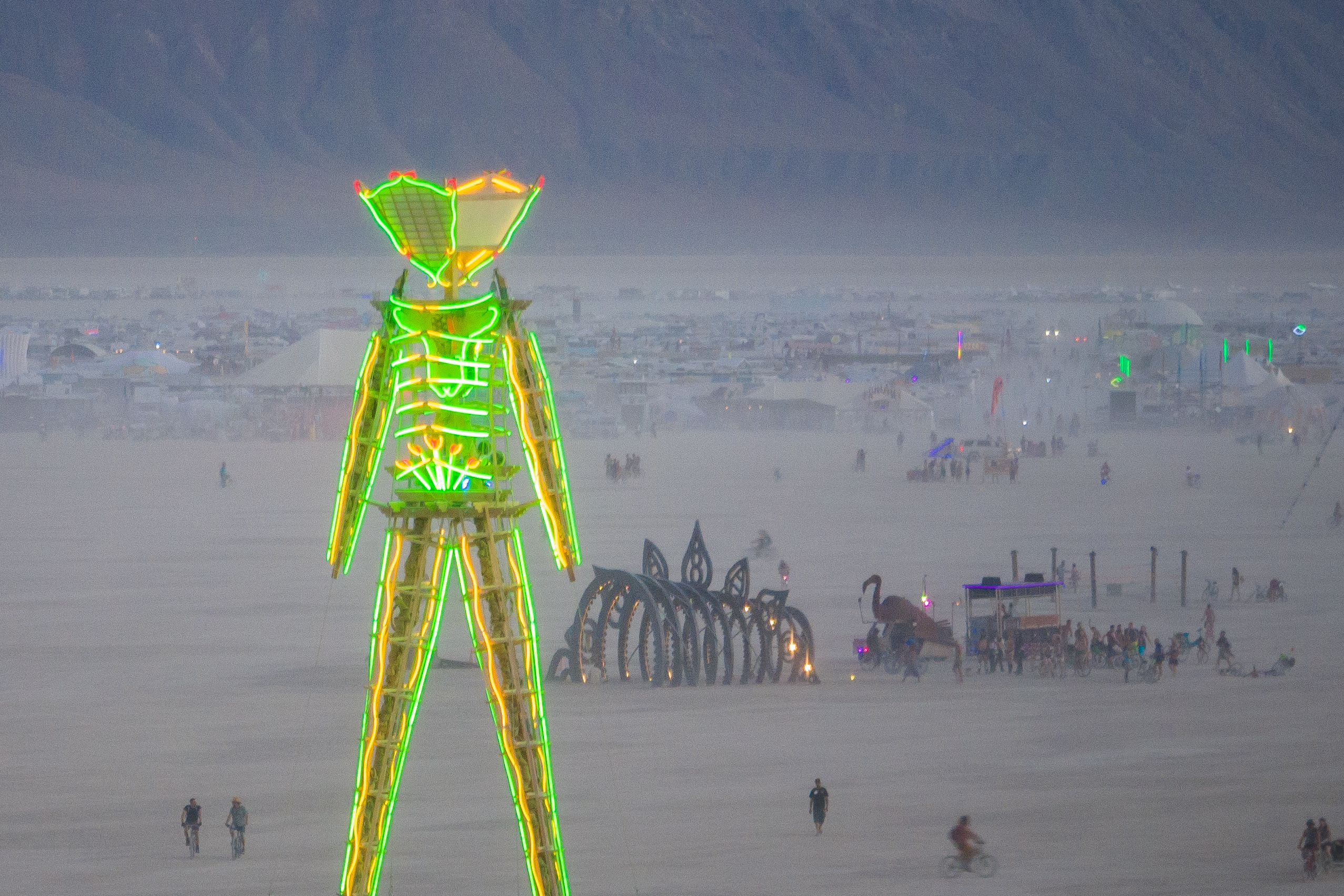Burning Man is urgently calling for millions more in donations amid faltering ticket sales and staff layoffs.
The nonprofit’s CEO, Marian Goodell, primarily blamed flagging higher-priced ticket sales and increased operating costs since the pandemic.
The festival has sold a tier of higher-priced tickets since at least 2016. In 2023, a limited number of more expensive advance tickets were available between Feb. 1 and Feb. 3, with 1,000 tickets costing $2,750 each and 3,000 costing $1,500, according to an archived version of Burning Man’s 2023 ticket page.
Ticket sales for the annual bacchanal in Black Rock City flopped this year after a rain-plagued 2022, and scores of burners later resold their tickets, eating huge losses.
As such, the fundraising target for Burning Man has doubled from $10 million to $20 million, Goodell said in a recent blog post. The funds must be raised before 2025 ticket sales begin next year.
“This $5.7M shortfall, combined with a $3M dip in receipts from main-sale tickets and vehicle passes, means that our year-end charitable donation target has essentially doubled to nearly $20M,” she wrote.
Goodell and Burning Man Project spokespeople did not immediately respond to requests for comment.
This isn’t the first time Burning Man has found itself cash-strapped — organizers canceled the event in 2020 due to pandemic restrictions and implemented staff layoffs and pay cuts.
But after canceling, the nonprofit raised $39 million in 2020 and 2021, Goodell said in her recent post, and was able to retain some staff to return post-pandemic. Burning Man eventually returned in 2022.
Some burners said they supported the call for more donations to fund Burning Man.
“I think that every performing artist knows that these organizations don’t make their money from ticket sales, and it’s naive to think Burning Man would,” said Alameda resident Marisa Lenhardt, who has led the Death Guild Thunderdome camp for 20 years.
Inverness resident Jim Pettigrew has run Black Rock Yacht Club with his wife and children for two decades. He called Lenhardt’s perspective valid but fears “big money” funding Burning Man, citing the influx of wealthy glampers across the Playa.
“Having big money can be a contaminant when it comes to having an authentic Burning Man experience. But when it brings in big art, it’s a benefit,” Pettigrew said. “My worry is that it could increase the population of billionaires, and there are already quite a few.”
Because Burning Man operates without corporate sponsorships or merchandise revenue, “generous philanthropy” is needed to keep the yearly event economically viable, Goodell wrote. She added that Burning Man is working “behind the scenes” to get money from “dedicated major donors,” whom she did not identify in the blog post, although the event is popular with wealthy techies and VCs and counts Sam Altman among past attendees.
Goodell said ticket sales can’t fully fund the event, noting that in 2023, Burning Man cost an estimated $749 per participant, while the main ticket price was $575.
“This would price out diverse community participation and is inconsistent with our principles,” Goodell said.
The blog post stops short of saying the annual event would be canceled if the nonprofit can’t raise $20 million in time but hints at the alternative — increasing ticket prices.
“We need your help to keep Burning Man accessible for the next generation!” Goodell wrote.
Those interested in donating to the Burning Man Project can do so here.
